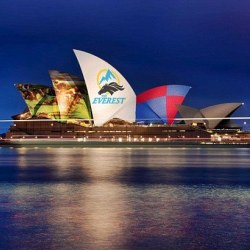Big Changes Coming to New Jersey in 2018

This year has been one of the most significant as far as New Jersey’s online gambling industry is concerned, with revenues continuing to return year-on-year growth each month, and the state now agreeing to pool its poker players with those of Nevada and Delaware, with Pennsylvania expected to join the network soon after.
Furthermore, a number of other exciting developments are shaping up for the year ahead that are likely to have an equally healthy impact on the Garden State’s gambling industry. These include at least one of the previously shuttered casinos opening its doors for business, and the possibility of a positive judgement by the US Supreme Court paving the way for the state to launch its own legal sports betting market.
Reopening Casinos
In the wake of the Great Recession of 2008, New Jersey’s casino market was hit badly with five of its casinos shutting down between 2014 and 2016. In addition, the woeful situation was further compounded by increased competition from neighboring states such as Pennsylvania and New York, ultimately resulting in an unprecedented revenue drop in New Jersey.
Of course, an improvement in the world economy as well as the introduction of online gambling by New Jersey in 2013 has since helped the industry turn around. Moreover, there are now further positive signs of growth after it was announced this year that Hard Rock International had purchased the Trump Taj Mahal casino with the intention of carrying out a $500-million renovation and opening the venue by next summer.
In the meantime, rumors are swirling around that the former Revel casino which has been shut for more than five years may now have been sold by Glenn Straub to AC Ocean Walk LLC for around $200 million. While these reports have yet to be confirmed, it has also been asserted that AC Ocean Walk had applied for a casino license from the NJ Casino Control Commission with the intention of opening up the property in 2018.
If true, New Jersey may then see the number of its casinos increase to nine next year, which would represent somewhat of a revival for Atlantic City.
Sports Betting Case
This month, the US Supreme Court held a hearing on New Jersey’s challenge to the Professional and Amateur Sports Protection Act (PASPA) of 1992 which restricts legal sports betting in the country to just the states of Nevada, Oregon, Delaware, and Montana. While the case is currently in its early stages and a decision on the issue is not expected until June 2018, there are already positive signs that the sports betting monopoly that these four states enjoy may soon be lifted.
For instance, some of the justices involved have already stated their opinion that the federal government should not be allowed to “tell [New Jersey] how to legislate”, with any positive movement on the topic obviously having far reaching implications for the rest of the country. As Justice Anthony Kennedy commented a few weeks back:
“The citizens of the State of New Jersey are bound to obey a law that the state doesn’t want but that the federal government compels the state to have. Is this coming from the federal government? Is this coming from the state government? That’s precisely what federalism is designed to prevent.”
At a time when states have started to expand their gambling markets in order to generate much needed revenues for the coffers, sports betting is seen as a particularly lucrative industry that last year generated more than $150 billion in wagers, according to the American Gaming Association.
Against this backdrop, at least 20 states have given signed support in favor of New Jersey’s case, while a number of these have already passed laws allowing for sports betting in their states should PASPA be dismantled, including New York, Pennsylvania, Connecticut, and Mississippi.
That said, there is always the possibility that New Jersey may get to receive an even bigger share of the market if the Supreme Court gives a positive response to the state’s challenge, but also chooses to restrict its ruling to just New Jersey.










